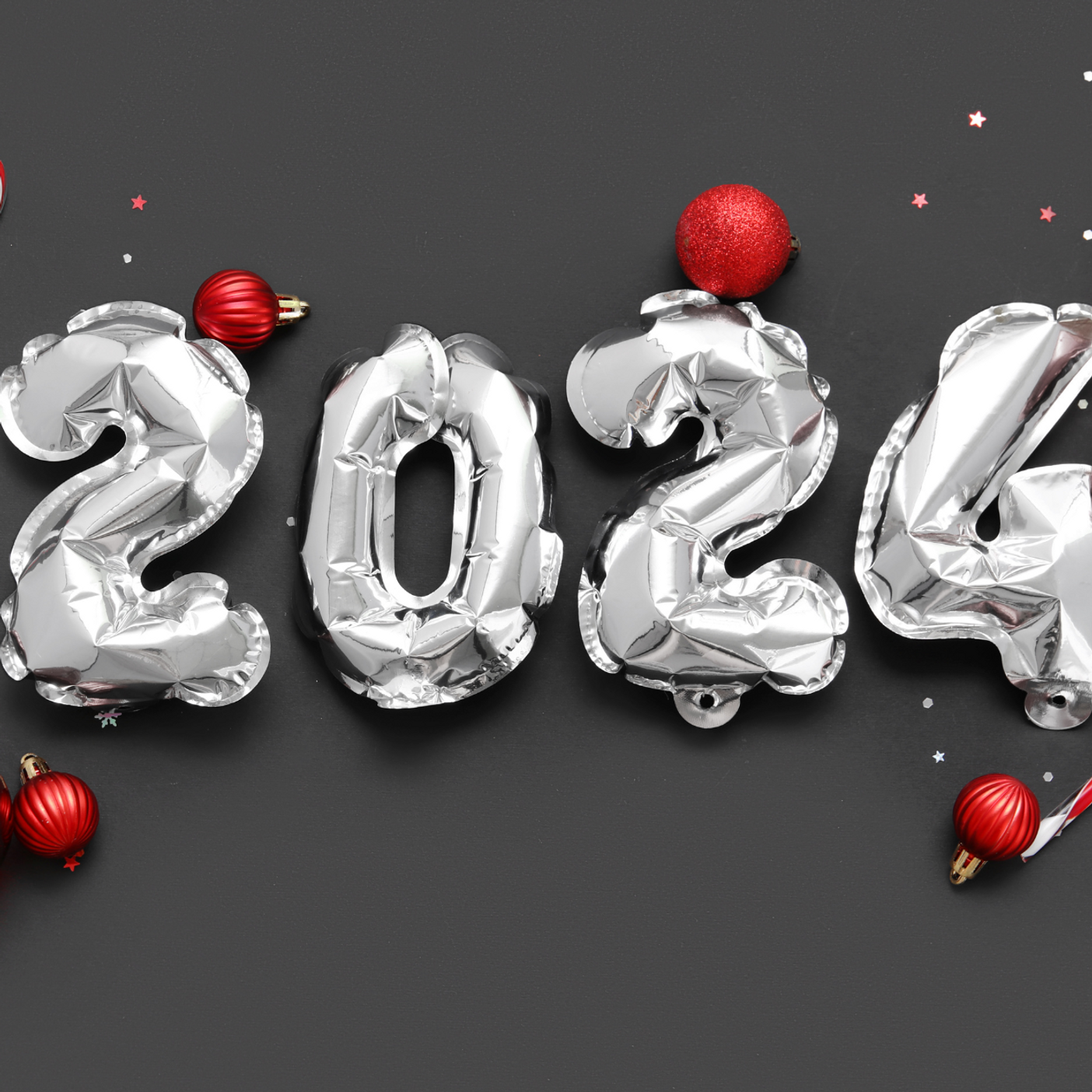2023 has been a somewhat challenging year for recruiters. From tech giant layoffs to shrinking recruitment teams, there has been a feeling of widespread hiring uncertainty. Many have used this time to overhaul their processes and up their technology stack to improve productivity. With this in mind, what is the outlook for the recruitment industry in 2024?
We hosted a webinar with Hung Lee in partnership with Recruiting Brainfood and gathered the top predictions from the industry experts: Global Director of TA at Visa Celinda Farias Appleby, Recruitment consultant and creator of the Recruiting Future podcast Matt Alder, and our CEO Adam Bird.
Rise of AI
AI has undoubtedly had a significant impact on industries across the board this year and it only looks set to keep growing in prominence in 2024. It has truly transformed the way hiring is done. So how should recruitment teams adapt?
Matt shared his thoughts on the future of AI and what it will mean for recruiters.
“When we look into the future, these AI tools are only going to get better. There will be a time where it will be indistinguishable whether someone's using AI or not. I think it's fantastic from a recruitment and marketing perspective, but it does put everyone at the same level. So how do you differentiate yourself? We are fast approaching a situation where we've got AI talking to AI, and we're trying to recruit people from this.”
"I think what we see as we move forward is we have to transform the recruiting process, to assess people in different ways, to automate things in different ways. And I think that, we'll see lots of companies putting things in place to try and spot AI generated applications, but it just won't work. So we need to think about our processes and how to adapt them to what’s happening.”
Matt predicted AI will be widespread throughout recruitment tools both existing and new.
“I think that what we'll find in 2024 is that there'll be a lot of automation and AI baked into the tools that potentially you're already using as the vendors strive to keep up with the market over the next 12 months.”
Candidate experience
But how much is too much AI? Do we still prioritise human touch during the hiring process?
There’s a unanimous response from candidates that they still want that human connection – they don’t just want to talk to a bot. Yes, certain stages of the process should be automated, but not at the cost of relationship building.
Celinda acknowledged that candidate experience has been poor quality and needs to change in 2024, which is why it’s top of so many recruiters priorities for the coming year and is being built into their planning.
“I think poor candidate experience has a lot to do with the fact that our fellow recruiters have taken a hit from their career. So for the past three years, our numbers dwindle, our application rates grow, but the right processes aren't in place to deal with it. A lot of organisations are going through foundational work since it's been slow. Businesses are building new career sites, getting new ATS's, and there's a lot of HR technology spend that's going on. Couple that with lowering your number of recruiters and not having the processes in place to keep up with that demand.
“My prediction for 2024 is that we're going to bring more recruiters back, whether it's in house or working with agencies, you're going to see an uptick of more humans in the process. Because I do think that the volume of jobs will increase for companies. And hopefully with this there will be a resurgence of recruiters coming back. I urge all of our recruiters to bring that energy that they felt like they were being ghosted and just be real human in your own with your own candidates and turn it around because I do think it's going to take real real human touch to change it.”
Diversity and Inclusion
Unfortunately there have been mass layoffs of D&I roles within the past year. There has been a profound struggle to achieve the ambitious objectives set out by companies when they originally hired these executives. Celinda weighed in on why she thought this was.
“I think in 2020, in the United States, many people answering the call of George Floyd and we came up with diversity goals. And they started at the very top, giants like Amazon, coming up with these very quick responses to the riots in the United States with these diversity goals, but a lot of companies have failed. And when you fail at public statements coming from the heads of your company, somebody has to lose a job. I think that's had a lot to do with the heads of DEI losing their jobs."
It is ultimately down to company culture, and changing this isn’t easy as everyone needs to be on board, as Celinda goes on to explain:
“Your CEO can say something, your public statement can say something, and you can hire someone that's accountable, but if no one else under you is marching to the beat of that drum and supporting that person and the CEOs goals, then you have a culture problem.”
But D&I needs to be prioritised by businesses if they want to appeal to the younger generation. A recent EY survey showed that more than 3 in 4 Millennials would leave employer if DE&I initiatives not offered. This is now spreading into neurodiversity.
Neurodiversity is being talked about more as more people are becoming aware of the symptoms and getting diagnosed. Matt explained companies will have to adapt their hiring process to meet neurodivergent needs.
“The other area, which hardly ever gets talked about, is neuro inclusion. And I think that is one of the things to think about for 2024. We've talked a lot about automation and assessment, which are great things for recruiting, but what I think we have to be very aware of is, are these ways of working neuro inclusive, are we cutting out neurodivergent people because of the type of processes that we're putting in place.
"It’s been discovered that around 20% of the workforce is neurodivergent, and only 3% of those people have actually got a diagnosis. So by being neuro inclusive within your organization, you're getting the most out of your workforce, because everyone's brain is different. So as we move forward with AI, we need to keep this in mind.”
Chatbots and personalization
Following on from the topic of AI, we’ve started to see an increase in chatbots on career pages, to help candidates with those first touch points and instantly respond to their queries. There’s debate over whether this is a good thing or a bad thing, once again taking away the human element, however speeding up the process. Our “everything now” society generally wants and expects things in all areas of their lives as fast as possible, so are chatbots a good way to fulfill this need?
Matt spoke about how chatbots feed into the focus on personalization that we’ll see in the coming year.
“There'll be much more discussion and a drive towards personalization in career sites. So we've seen that at the top end in the last few years with career site systems that serve specific content depending on what people are doing. But I think that chatbots and conversational AI takes that to a whole new level and gives people that personalized experience.
" I think it's important to distinguish between those old chatbots that used a decision tree and what's available now with conversational AI plugging into databases and pulling relevant personal information. So I think that the companies who do these kinds of things first, they're gonna be all over this next year. But it takes a very long time for it to work its way through the market.”
However there is some conflict between privacy teams and recruitment teams on this matter, using personal data can be a tricky situation for a business to contend with. Especially those who are highly security and privacy focused such as financial or legal organizations. Adam explained why there would be issues in the coming year when attempting to implement personalization and why it may be roadblocked.
“I think the challenge is, personalization implies that you know about the individual. There's a big cultural difference between the approach to data privacy in the USA, and that in Europe. And so I think personalization sounds wonderful and desirable, until you realize that actually, in order to benefit from that, people are going to have to give up elements of their data and privacy.
"If you want to know about someone, you're going to have to learn about them from other data sources, you then get into really precarious ground with training models on that data. The EU AI act is going to present a real challenge to this, because who owns that data? Where should that data be used? What's the appropriate use of that data? Everything is in flux.”
Recruitment productivity tools
Scheduling automation was mentioned as one of the top parts of the process to be automated, recruiters need to start using an effective tool for this purpose. And not one that can just handle to simple 1-2-1 interview scheduling, but also multi-person and complex use cases. Adam spoke about what recruiters could expect from scheduling automation in the coming year.
“I think what's been really interesting about the AI paradigm is this idea of an assistant that sits alongside what you're doing, because for recruiters, the ATS runs the process. That's where the workflow is and everything else should essentially be subservient to that and support that process. A lot of AI tools are augmenting that process. And that's in many ways, how we designed our tooling, as an augmentation of the existing ATS with automated scheduling.”
ATS platforms will also transform into Talent Intelligence platforms, harnessing the power of AI to get to know candidates better and make smarter hiring choices.
Conclusion
It looks set to be another big year in terms of advancements and changing processes in recruitment. It’s imperative to keep up with the latest trends and harness the power of technology to stay ahead. Recruiters, hold on tight – 2024 is going to be a wild ride!
Watch the full webinar in partnership with Recruiting Brainfood here!

Calendar hygiene: a guide to cleaning up messy calendars
Is your calendar messier than a teenager’s bedroom? Time for a spring clean – read on for our top calendar hygiene tips.

How to Create a Recruitment Outreach Strategy
Founder of QuickMail.io, Jeremy Chatelaine, shares his actionable recruitment outreach strategy to help recruiters have more conversations with qualified candidates.

Rethinking Recruitment KPIs: What Metrics Truly Matter
In the world of recruitment, certain traditional key performance indicators (KPIs) have been long-standing champions. But are these traditional KPIs still relevant today? Talent Acquisition experts Stephanie Baysinger, Mary-Kay Baldino, and José Manuel Delgado Garcia share their thoughts.

